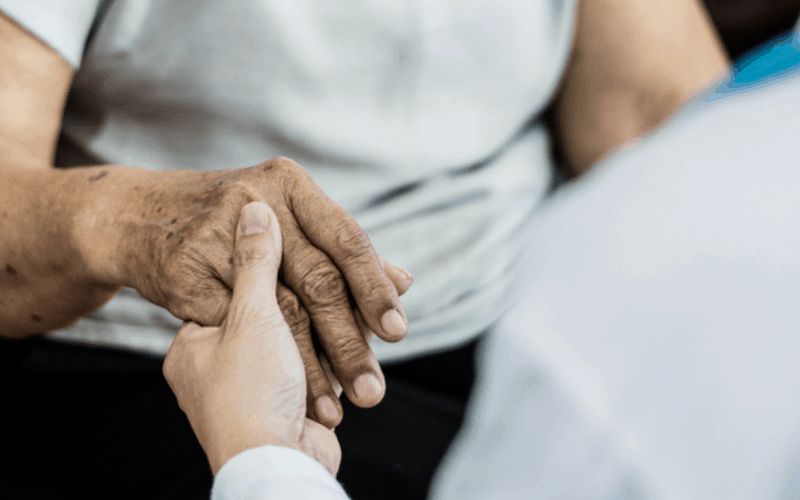As care for patients dealing with a serious illness or nearing end-of-life evolves, therapy is increasingly acknowledged as an important element of hospice and palliative care therapy.
In the palliative care and hospice setting, therapists help support the patient, family, and caregiver to provide maximum quality of life. During hospice and palliative care therapy consultations, therapists work to identify activities that are meaningful to the patient and help address barriers to performing these activities.
In this blog, Intrepid USA’s Palliative Clinical Coordinator, Renee Firestone, MS, OTR/L, CDP, lists three in-home therapy consultation benefits of hospice and palliative care patients.
Pain Management & Relief
For patients experiencing pain or discomfort related to their illness or condition, the importance of hospice care therapy is it can provide relief and promote independence when used in conjunction with traditional pain management methods.
Therapists are range of motion and mobility experts. They can recommend special equipment, stretches, transfer techniques, pressure relief, and more. This can be a particular benefit if the patient is bed-bound and contractures or bed sores become a concern. Additionally, therapists can assist the caregiver in finding the best way to perform cares at bed level without causing discomfort.
Home Modification & Safety Equipment Recommendations
More seniors are choosing to age in place and receive the support they need from personal caregivers in the comfort and safety of their own homes. It’s one of the many reasons patients and their families choose Intrepid USA Healthcare Services for hospice and palliative care services. If the patient has experienced a recent medical or functional decline, an in-home therapy consultation can be especially helpful in addressing safety or mobility concerns.
During the consultation, the therapist can identify hazards in the home and even recommend specific home safety equipment. Sometimes, things as simple as a handrail or shower chair can completely change the game, allowing vulnerable patients to remain safely at home with a trained caregiver.
Increased Functionality
Symptoms like shortness of breath, weakness, and chronic fatigue may limit the patient’s ability to perform basic daily tasks.
In this instance, a therapy consultation can help address deficits impacting quality of life and functionality. Therapists are experts in modified techniques, energy conservation principles, and proper body mechanics. These techniques can help minimize fatigue, overexertion, and pain.
To learn more about therapy consultations in the hospice and palliative care setting, contact Intrepid USA Healthcare Services for more information.

